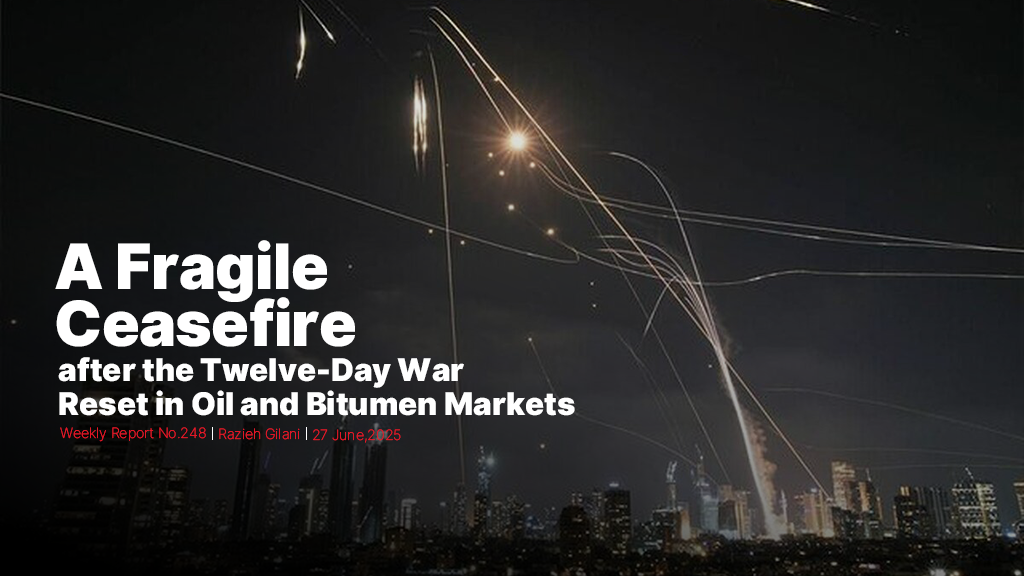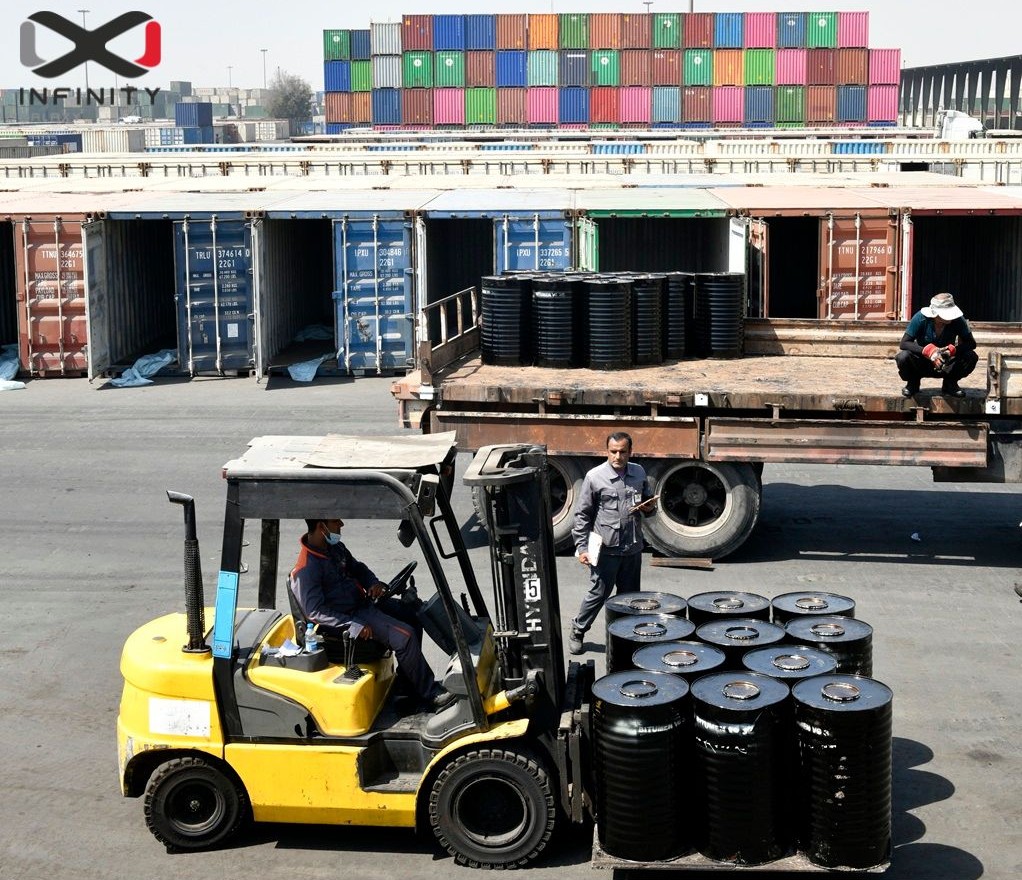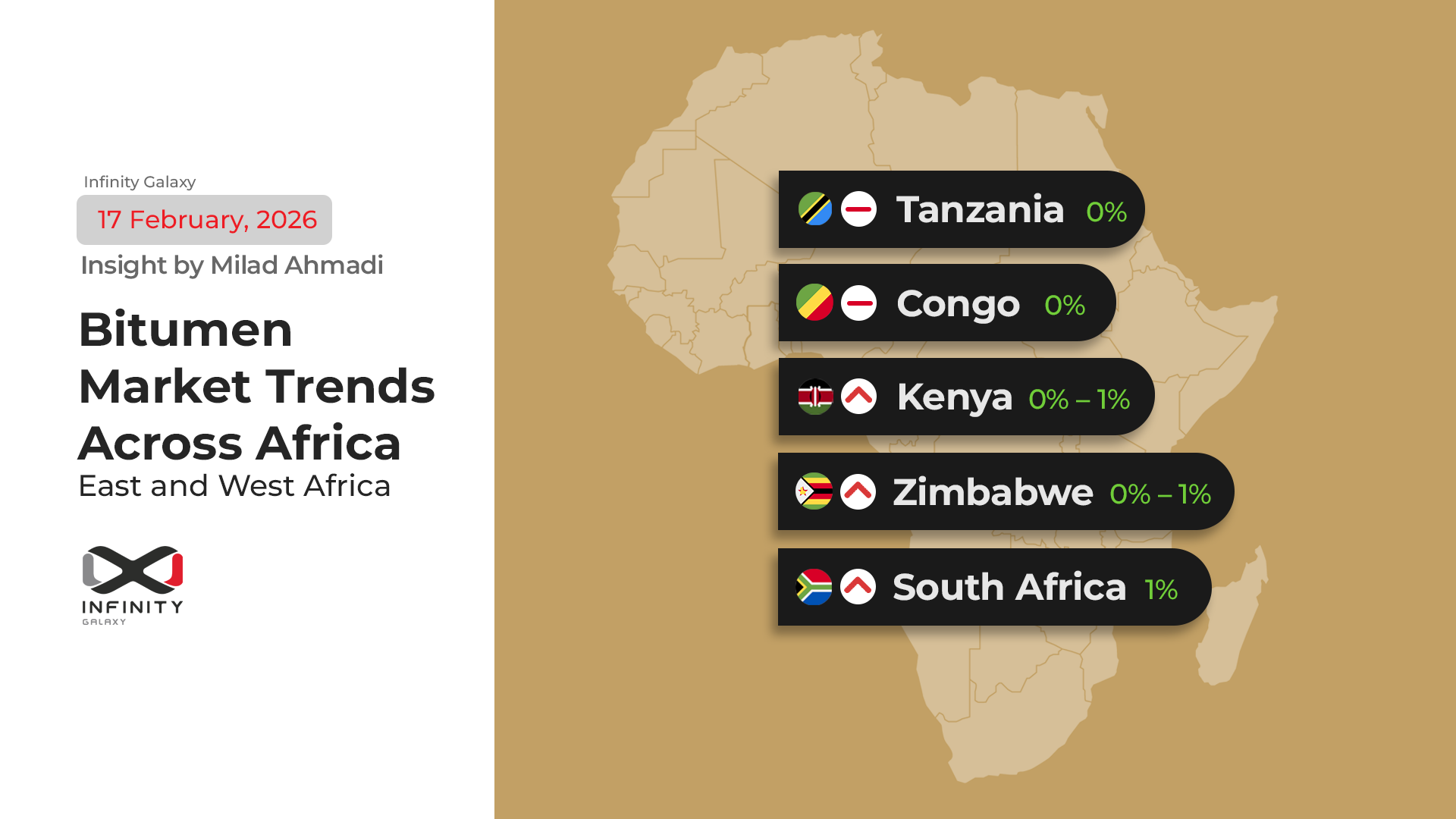Weekly Bitumen Report: A Fragile Ceasefire after the Twelve-Day War, Reset in Oil and Bitumen Markets

The Political and Economic Developments of the Week
The Twelve-Day War and Ceasefire and its Global Consequences
During the past week, Iran attacked Israel with ballistic missiles for the first time. On June 22, the U.S attacked 3 nuclear sites of Iran, which was given the codename Operation Midnight Hammer. After this attack, an emergency meeting was held by the International Atomic Energy Agency. In response to this attack, Iran fires 6 missiles at U.S. bases in Qatar on June 23, leading to the cancellation of flights in many countries neighboring the Persian Gulf.
On June 24, Donald Trump announced that a complete and total ceasefire between Tehran and Tel Aviv had been fully agreed, mediated by Washington.
By the morning of Thursday, June 26, the situation in both countries had largely returned to normal; however, the ceasefire conditions remain fragile. The 12-day war, which began with an attack and invasion by Israel, resulted in the deaths of numerous civilians. The news mentioned in this section has been extracted from international news agencies like Reuters, Al Jazeera, and AFP.
At the same time, an extraordinary NATO summit was held on June 25 in The Hague, where it was decided that members would increase their defense spending to 5% of GDP by 2035.
At the same time, a summit of European Union leaders was held in Brussels last week, focusing on Trump’s tariffs.
In terms of microeconomics, the World Bank and International Monetary Fund have warned that global growth in 2025 will decline by 2.3% due to the combination of severe tension in the Middle East and the American tariff war. As a result, the risk of recession will increase with further shocks
Crude and Fuel Oil Markets in East Asia
Fluctuations in Crude and Bitumen Price by the Ceasefire
In the past week and following the attacks by America on Iran’s nuclear infrastructure, oil prices jumped up to about $76. However, by the announcement of “complete and total ceasefire” and the clarification that the Strait of Hormuz would not be blocked, it fell by more than 7% within a day, and in trading on June 23, it dropped by about $5.5, returning to the range of $69-71 per barrel. With the elimination of war premium and the report of the International Energy Agency regarding the increase in global inventories, the market downplayed supply risk, recording a further decline of approximately $2.08 (2.9%), bringing the price of Brent crude oil to $66.92 on Thursday.
By the fall of the crude oil price, Singapore 180CST declined to $426. Bitumen prices in Singapore and South Korea were traded at $423 and $405, respectively.
Bitumen Market in Bahrain and Europe
Stability in Bahrain, Jump in Europe Prices, Powerful Flow of Export
In Bahrain, the range of bitumen prices remained unchanged despite the challenges in the Middle East.
In Europe, FOB prices in Rotterdam and the Baltic have increased by over $45 per ton, reaching the highest level of the year. Although bitumen prices have been declining in some countries, the export flow remains very strong, and the market price in Europe has stayed within the range of $450-520.
| Latest Market Prices (26 Jun 2025) | |
|---|---|
| Crude Oil | $66.92 |
| Singapore’s 180 CST | $426 |
| Singapore’s Bitumen | $423 |
| South Korea’s Bitumen | $405 |
| Bahrain’s Bitumen | $400 |
| Europe’s Bitumen | $450-$520 |
India Bitumen Market
Involved with Monsoon and Middle East Instability
The bitumen market in India was under the direct influence of the early monsoon, and the importers postponed their new purchases. Local prices increased in India, but the new orders are under the influence of security issues in the Middle East. The current unrest in the Middle East has delayed export commitments.
China Market
Price Increase but Stagnation in Trades; the Bitumen Market in China is on Hold
Bitumen prices in the south and east of China increased by about $15 per ton; however, the new purchases were reduced due to some holidays and the continuation of the rainy season. Some of the players hope for the market recovery by the end of the rainy season. The market is facing a hold status with limited supply and an uptrend in prices.
Market Analysis of Iran
Iran’s Bitumen Market in Semi-Shutdown; Preparing for Export Resumption
The Iran bitumen market was in a semi-shutdown state during the past week; the commodity exchange was closed, internet services were disrupted, and companies primarily opted for remote work due to security risks from Israeli attacks. However, it seems that with improving conditions and the continuation of this situation, normal operations in companies may resume starting Saturday, June 28, and the export process may begin again.
In these sensitive market conditions, Infinity Galaxy does not halt its sustainable solutions for exports and ensures clear communication with customers.
Talk to Our Bitumen Experts
At Infinity Galaxy, we’re here to answer any questions about buying bitumen. You can also check the latest bitumen prices by destination. Let us know your inquiry using the form below.
"*" indicates required fields






